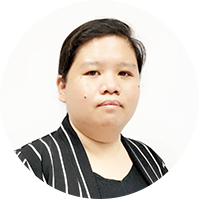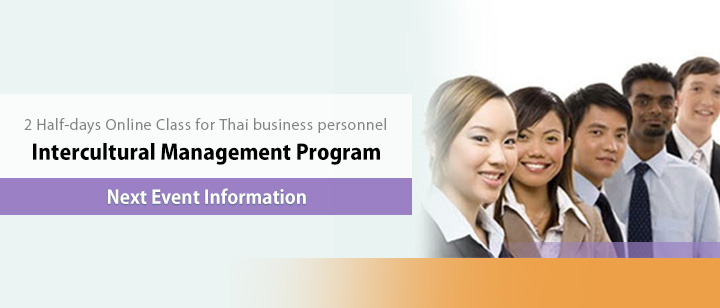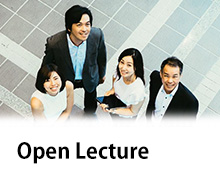
Column & Report
- HOME
- Case Study
- Column & Report
- Intercultural Management Training- 2 half days online program for Thai business personnel who work in a Japanese Company <Report>
- June 17th-18th, 2021report
- Intercultural Management Training- 2 half days online program for Thai business personnel who work in a Japanese Company <Report>
Written by Cicom Brains UBCL CO., LTD. Nishada Namchoat

We (CICOM BRAINS UBCL CO., LTD.) held the online “Intercultural Management Training – 2 half-days program for Thai business personnel who work in a Japanese company on June 17-18, 2021.
Although it was an online training, the participants were very active and very responsive to the discussions and the class activities. Together, they shared their experiences and doubts with the enthusiasms to understand Japanese people and others who have difference cultural values. Everyone brainstormed their ideas to solve issue in a workshop case as they were actively wanting to create a good and trusting relationship in the workplace. Blended the Thai and Japanese working culture to find harmony.
What is this program like?
This program is designed for Thai businesspersons who work in a Japanese company or who work with Japanese. Participants will learn how to communicate more effectively and how to build a good relationship with his/her Japanese bosses, colleagues, and clients etc. Participants will learn how cultural differences affect communication in business and find solutions through a lecture based on “The six dimensions model of national culture (※1)”. This model is one of the best-known cultural frameworks and of the most effective tools to improve cultural awareness and intercultural management skills, defined by Professor Geert Hofstede(※2), as well as various practical exercises and role plays facilitated by a highly experienced professional CICOM BRAINS UBCL certified instructor. In a program, participants take a self-assessment "Culture Survey (※3)" that allow them to quantify and verify cultural values.
Professor Geert Hofstede conducted one of the most comprehensive studies of how values in the workplace are influenced by culture. He then defines culture as “the collective programming of the mind distinguishing the members of one group or category of people from others”.
The 6-D model is a method based on the result of his extensive worldwide research. This method provides a systematic approach to understand the key underlying factors that influence culture.
Prof. Hofstede is a world authority in the field of “Culture and Management”, and his most popular book, Cultures and Organizations: Software of the Mind (1991, newest edition 2010, co-authored with Gert Jan Hofstede and Michael Minkov), has so far been translated into 20 languages.
|
Professor Geert Hofstede conducted one of the most comprehensive studies of how values in the workplace are influenced by culture. He then defines culture as “the collective programming of the mind distinguishing the members of one group or category of people from others”. The 6-D model is a method based on the result of his extensive worldwide research. This method provides a systematic approach to understand the key underlying factors that influence culture. Prof. Hofstede is a world authority in the field of “Culture and Management”, and his most popular book, Cultures and Organizations: Software of the Mind (1991, newest edition 2010, co-authored with Gert Jan Hofstede and Michael Minkov), has so far been translated into 20 languages. |
"Culture Survey" is an assessment based on the 6-D model. It allows you to objectively understand your own values by the numbers in a range from 0 to 100 represented by 6 dimensions. For example, by comparing each number on values between yourself and the average Japanese, you can foresee potential problems due to differences in values. You can get a useful insight about how to build better relationships in business with staff, business partners, and customers from different countries.
|
"Culture Survey" is an assessment based on the 6-D model. It allows you to objectively understand your own values by the numbers in a range from 0 to 100 represented by 6 dimensions. For example, by comparing each number on values between yourself and the average Japanese, you can foresee potential problems due to differences in values. You can get a useful insight about how to build better relationships in business with staff, business partners, and customers from different countries. |
The curriculum is well-structured and organized with the theory of 6-D model and differentiating from the one in typical training programs which mainly rely on instructor’s talks based on his/her experiences.
By recognizing and respecting cultural differences from the Japanese and utilizing Hofstede’s model, participants will be able to mitigate the risks of misunderstanding of Japanese values and they can understand and fine-tune to Japanese communication style.
How was the training?
The virtual classroom allowed participants to enter from 8:45AM and officially started at 9:00AM.
In the morning session of day 1, after the ice-breaking session, the instructor, Ms. Kawashima explained difference of cultural values between the Thai and Japanese derived from various factors which influence the national culture, such as geographic, historic, religion, education, and language. All participants were very cooperative and the atmosphere in the room was very lively.
Then, we proceed to the lectured on the “Hofstede 6-D model’s” topic. The participants took "Culture Survey" assessment and objectively grasp their own sense of cultural values by number. There was a Q&A session regarding the 6-D model to deepen their understanding their own cultural values comparing to Japanese and they will be able to apply 6-D model in their own workplace.
In the morning session of day 2, the instructor began the class by wrapping up the content of day 1. The instructor also answered the questions from participants to solve participants doubts of Japanese people’s behavior and/or their company’s cultures, based on Hofstede’s theory and her own experiences.
The content of day 2 focusing on how to create a trusting relationship between Thai and Japanese people in the workplace. The participants exercised the knowledges through discussions and workshops. Through these input and output activities, participants firmly understand the meaning / influence of cultural difference and improve intercultural communication skills and knowledge.

We hope all participants enjoyed the online class and will soon see the better results by utilizing the learned knowledge in their workplace. And the questionnaire results by participants are below. Please utilize the information in this report to help you to understand how this program was conducted and how useful and effective it is to enhance mutual understanding between Thai and Japanese. We will hold this program on September 8-9, 2021.
We are looking forward to seeing you in a class.
Participant Profile
Participant Satisfaction

- Q. How do you feel about today’s program? (Excerption)
-
- I understand Japanese people better.
- The instructor answered questions very clearly. This is very helpful for us to understand the content of the training.
- I felt enlighten about Japanese people’s behaviors and the reason behind their characteristic.
- This program is very helpful for working with Japanese people.
- Understand Japanese people mindset and their expression without telling a word.
- This is very helpful for me.
- Q. What did you get out of this program? (Excerption)
-
- How to be able to get along with Japanese manager and colleagues.
- I will use what I learnt today to adjust myself to working with Japanese people better.
- The differences between Thai and Japanese’s working culture. This helps us understand the other better. Now I know why they behave or act the way they are, and I will share this useful information within my company.
- How to work with Japanese people.
- Understand Japanese culture and apply them to my work to reduce gap between me and Japanese colleagues.
- I will inform my Thai colleagues and staffs about Japanese people’s cultural background.
- Q. Please share with us any comments about this program. (Excerption)
-
- The program is very good.
- This program is helpful.
- The instructor and staff are very supportive and helpful. Thank you very much.
- Contact UsContact us for additional informations about the courses or training plans.
-
Tokyo:+81-(0)3-5294-5576
*Japanese
Bangkok:+66-(0)82-671-8574
*Thai/English
-


